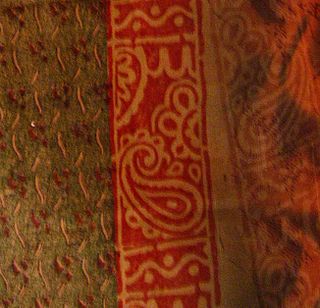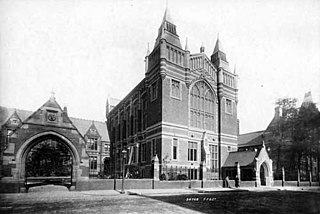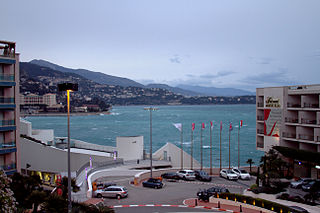
Salomon v A Salomon & Co Ltd[1896] UKHL 1, [1897] AC 22 is a landmark UK company law case. The effect of the House of Lords' unanimous ruling was to uphold firmly the doctrine of corporate personality, as set out in the Companies Act 1862, so that creditors of an insolvent company could not sue the company's shareholders for payment of outstanding debts.

Regal (Hastings) Ltd v Gulliver [1942] 1 All ER 37 is a leading case in UK company law regarding the rule against directors and officers from taking personal advantage of a corporate opportunity in violation of their duty of loyalty to the company. The Court held that a director is in breach of his duties if he takes advantage of an opportunity that the corporation would otherwise be interested in but was unable to take advantage. However the breach could have been resolved by ratification by the shareholders, which those involved neglected to do.

Peso Silver Mines Ltd v Cropper, [1966] S.C.R. 673, is a leading Canadian case decided by the Supreme Court of Canada on the fiduciary duty of corporate directors, the boundaries of conflict of interest, and the type of damages that may be obtained in cases of wrongful dismissal.

English trust law concerns the protection of assets, usually when they are held by one party for another's benefit. Trusts were a creation of the English law of property and obligations, and share a subsequent history with countries across the Commonwealth and the United States. Trusts developed when claimants in property disputes were dissatisfied with the common law courts and petitioned the King for a just and equitable result. On the King's behalf, the Lord Chancellor developed a parallel justice system in the Court of Chancery, commonly referred as equity. Historically, trusts have mostly been used where people have left money in a will, or created family settlements, charities, or some types of business venture. After the Judicature Act 1873, England's courts of equity and common law were merged, and equitable principles took precedence. Today, trusts play an important role in financial investment, especially in unit trusts and in pension trusts. Although people are generally free to set the terms of trusts in any way they like, there is a growing body of legislation to protect beneficiaries or regulate the trust relationship, including the Trustee Act 1925, Trustee Investments Act 1961, Recognition of Trusts Act 1987, Financial Services and Markets Act 2000, Trustee Act 2000, Pensions Act 1995, Pensions Act 2004 and Charities Act 2011.

Keech v Sandford[1726] EWHC J76 is a foundational case, deriving from English trusts law, on the fiduciary duty of loyalty. It concerns the law of trusts and has affected much of the thinking on directors' duties in company law. It holds that a trustee owes a strict duty of loyalty so that there can never be a possibility of any conflict of interest.

Industrial Development Consultants Ltd v Cooley [1972] 1 WLR 443 is a UK company law case on the corporate opportunities doctrine, and the duty of loyalty from the law of trusts.

Boardman v Phipps [1966] UKHL 2 is a landmark English trusts law case concerning the duty of loyalty and the duty to avoid conflicts of interest.

Foster Bryant Surveying Ltd v Bryant[2007] EWCA Civ 200 is a 2007 UK company law case, concerning the fiduciary duty of directors to avoid conflicts of interest. The timing of the case followed some considerable unrest in the courts about the strictness of the law relating to taking corporate opportunities.
Bednash v HearseyorRe DGA (UK) Ltd[2001] EWCA 787 is a UK company law and UK insolvency law case, which held that a director's pay and pension was excessive and grossly negligent, and could be recovered after the company went insolvent.

Bray v Ford [1896] AC 44 is an English defamation law case, which also concerns some principles of conflict of interest relevant for trusts and company law.

Southern Foundries (1926) Ltd v Shirlaw [1940] AC 701 is an important English contract law and company law case. In the field of contracts it is well known for MacKinnon LJ's decision in the Court of Appeal, where he put forth the "officious bystander" formulation for determining what terms should be implied into agreements by the courts. In the field of company law, it is known primarily to stand for the principle that damages may be sought for breach of contract by a director even though a contract may de facto constrain the exercise of powers to sack people found in the company's constitution.

Williams v Natural Life Health Foods Ltd[1998] UKHL 17 is an important English tort law, company law and contract law case. It held that for there to be an effective assumption of responsibility, there must be some direct or indirect conveyance that a director had done so, and that a claimant had relied on the information. Otherwise only a company itself, as a separate legal person, would be liable for negligent information.
Cobbe v Yeoman's Row Management Ltd[2008] UKHL 55 is a House of Lords case in English land law and relates to proprietary estoppel in the multi-property developer context. The court of final appeal awarded the project manager £150,000 on a quantum meruit basis for unjust enrichment because Yeoman's Row had received the benefit of his services without paying for that. The court refused to find or acknowledge a binding contract, prior arrangement with a third party or promise, overturning a £2m award on the basis of a possible lien arising from a promise over the property. The court found a non-binding agreement in principle, entirely subject to the owner's final say to take into account for example their view of the market; this was the basis on the facts on which the parties were proceeding.

Bishopsgate Investment Management Ltd v Maxwell [1993] BCLC 814 is a UK company law case concerning a director's duty to act for proper purposes of the company. This case is an example of what would now be Companies Act 2006, section 171.

Aluminium Industrie Vaassen BV v Romalpa Aluminium Ltd [1976] 1 WLR 676 is a landmark UK insolvency law case, concerning a quasi-security interest in a company's assets and priority of creditors in a company winding up.

The Attorney General for Hong Kong v Reid (UKPC)[1993] UKPC 2 was a New Zealand-originated trust law case heard and decided by the Judicial Committee of the Privy Council, where it was held that bribe money accepted by a person in a position of trust, can be traced into any property bought and is held on constructive trust for the beneficiary.

Sinclair Investments (UK) Ltd v Versailles Trade Finance Ltd[2011] EWCA Civ 347 is an English trusts law case, concerning constructive trusts. Sinclair was partially overruled in July 2014 by the UK Supreme Court in FHR European Ventures LLP v Cedar Capital Partners LLC.

Murad v Al-Saraj[2005] EWCA Civ 959 is an English trusts law case, concerning remedies for breach of trust for a conflict of interest. It exemplifies a restitution claim.

FHR European Ventures LLP v Cedar Capital Partners LLC[2014] UKSC 45 is a landmark decision of the United Kingdom Supreme Court which holds that a bribe or secret commission accepted by an agent is held on trust for his principal. In so ruling, the Court partially overruled Sinclair Investments (UK) Ltd v Versailles Trade Finance Ltd in favour of The Attorney General for Hong Kong v Reid (UKPC), a ruling from the Judicial Committee of the Privy Council on appeal from New Zealand.

VTB Capital plc v Nutritek International Corp[2013] UKSC 5, [2013] 2 AC 337 is an English company law case, concerning piercing the corporate veil for fraud.
















